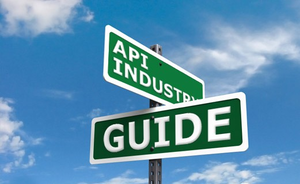Under the Falsified Medicines Directive the European Union (EU) is introducing new rules for importing active pharmaceutical ingredients (APIs) for human-use medicines into Europe. From 2 January 2013, all imported APIs were required to have been manufactured in compliance with standards of GMP at least equivalent to the EU’s GMP and as of 2 July 2013 this compliance must be confirmed in writing by the competent authority of the exporting country. Alternatively, the country may request listing (on the ‘white list’) if the country’s rules for GMP are equivalent to those in the EU before the EU will grant entry of the API.
EU API law causing concern among API producers
Home/Policies & Legislation
|
Posted 22/03/2013
 0
Post your comment
0
Post your comment

Many competent authorities from countries exporting APIs to the EU are concerned that they may not be able to put the necessary systems in place by July 2013 to be able to issue written confirmation of GMP compliance.
The problem is that although the EU adopted Directive 2011/62/EU in July 2013, the European Commission (EC) only issued templates and detailed guidance on the implementation of the rules in July 2012.
While the US has asked for exemption, it is thought to be unlikely that China and India, which make up an estimated 15% of APIs imported into the EU, will be ready to meet the July 2013 deadline.
The other problem is that the EC is assessing countries that have submitted listing requests to determine which countries have equivalent rules for GMPs and may therefore be exempt from providing written confirmation. APIs are imported into the EU from approximately 1,560 sites in 43 different countries, however, it is estimated that 300 API sites may still require inspection. Given that the resources available at the EU level may only be able to carry out 25 such assessments, this will leave many API sites without certification.
The Heads of Medicines Agency (HMA) has therefore expressed its concern that the main API producing countries exporting to the EU will not be on the ‘white list’ nor will national manufacturers of APIs have a ‘written confirmation’ of compliance. HMA is concerned that this might lead to shortages of medicines within Europe and consequently become a serious public health risk.
Related articles
Major shake-up of API import rules in Europe
European Commission publishes new rules on falsified medicines
Falsified medicines law approved by European Parliament
Permission granted to reproduce for personal and educational use only. All other reproduction, copy or reprinting of all or part of any ‘Content’ found on this website is strictly prohibited without the prior consent of the publisher. Contact the publisher to obtain permission before redistributing.
Source: EC, EMA, FDA, HMA
Guidelines
US guidance to remove biosimilar comparative efficacy studies
New guidance for biologicals in Pakistan and Hong Kong’s independent drug regulatory authority
WHO to remove animal tests and establish 17 reference standards for biologicals

Home/Policies & Legislation Posted 07/01/2026
ANVISA tackles 24-month backlog in biologicals post-registration petitions

Home/Policies & Legislation Posted 10/10/2025
The best selling biotechnology drugs of 2008: the next biosimilars targets








Post your comment